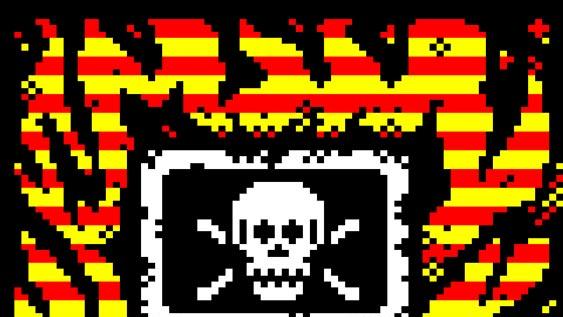ceefax
Latest

Artists give Teletext a new purpose
Next month and into September, Berlin will play host to the International Teletext Art Festival (ITAF). Teletext, a basic information service delivered over analogue TV signals, was once prevalent across Europe before becoming increasingly obsolete in the internet age. In the UK, the BBC switched off the very first teletext service Ceefax back in 2012, but similar systems are still active in several countries. The graphically challenged medium continues to be relevant in other ways, however, with plenty of digital artists adopting the simple format. Sponsored by various European teletext operators, the ITAF is now in its third year of showcasing the best in pixelated pieces. Check out the gallery below for select works from last year's event. [Image credit: Good Times by Dan Farrimond]

Londoners mourn as teletext goes dark, a victim of the DTV transition
Despite the many advantages of digital broadcast television, the transition is separating Europeans from a reliable source of information known as teletext. Citizens of London are the latest to experience the loss, as analog signals in the region were switched off just yesterday. Ceefax, a service of the BBC, has provided millions of Britons with news, sports, weather, television listings, subtitles and games for the past 38 years, and is now accessible only in Kent, Sussex, north-east England and Northern Ireland. Soon, it may cease to exist altogether. Seen as a precursor to the internet, teletext is a free service that's heavily rooted in analog PAL signals, where small packets of data are sent in the vertical blanking interval, which is otherwise unnoticed by viewers. Because the information is broadcast, users were never subject to network congestion, and only needed to wait a brief moment for their desired page to be transmitted -- more advanced televisions even cached this information locally. As part of the airwaves, the service is naturally free, and in that sense, it lacks a suitable replacement. As with all progress, however, there are casualties, and teletext was an unfortunate bystander. Those who cherished the service can take a moment to relive the memories in the links below.

